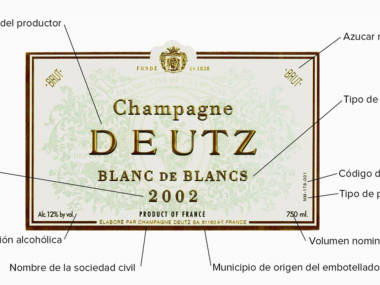Unlike other beverages we consume, wine does not carry its nutritional values on its label, because alcoholic beverages are not classified as nutritional. However, that does not mean that wine does not have calories or even nutrients to provide to our body.
Here we will help you understand what nutritional values you can expect in each type of wine, from red wines, white wines, sparkling wines and sweet wines, especially depending on the quality of sugar and alcohol that each one has.
In general terms, grapes that have a greater amount of sugar, through the process of fermentation -which basically consists of transforming those sugars contained in the must into alcohol-, logically result in a wine with a higher alcohol content.
Alcohol, the main culprit of the calories in wine
It is precisely alcohol that is the main source of calories in wine, more so than sugar. Thus, if we compare a slightly sweet wine but with low alcohol content, with another dry wine but with high alcohol content, the second one will have more calories. However, if we move on to a very sweet dessert wine, the calories are the highest in comparison.
On the other hand, carbohydrates come from sugar. Depending on its level of sweetness, a glass of wine usually contains from zero to 19 grams of carbohydrates. Again, sweet dessert wines exceed this approach. So, if you’re thinking about going on a diet, better avoid them.
Wine can also provide nutrients
Grapes not only contain sugars, but their skins also contain various nutrients. In this sense, red wines are usually the richest in minerals and antioxidants, especially compared to white wines.
Among the nutrients that can be found in wine are fluoride (40%), whose daily intake is recommended because it helps prevent cavities, and manganese (10%), which is an antioxidant beneficial to the brain, liver and nervous system. Wine can also contain potassium (5%), which helps the heart beat, iron (4%), which provides oxygen to your body, vitamin B6 (4%), which helps access the energy in your body and also vitamin B2, which provides oxygen.
There are also small doses of phosphorus, which strengthens bones, regulates hormones and aids digestion, and choline, which promotes memory and speeds up liver function.






